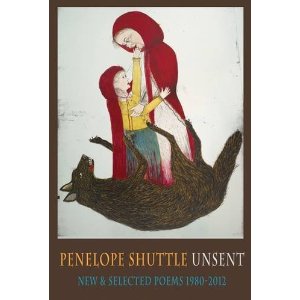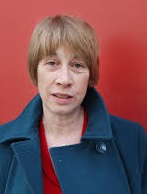Unsent: New & Selected Poems 1980-2012

Penelope Shuttle is one of Britain’s leading poets. This selection – drawn from ten collections published over three decades plus new work – shows both her consistency of voice and her energised openness to language and to life.
Adventurous, searching, interested in the luminous instant of reality that dwells in the perpetual now of the poem, Penelope Shuttle is a poet who clearly shares Picasso’s view that ‘If you know exactly what you’re going to do, what’s the point of doing it?’ Not for nothing was one of her books titled Adventures with My Horse.
The new poems of Unsent are communications to and with her husband Peter Redgrove, remembering their shared past with love, wit, paradox, exasperation and a lightness of heart towards ageing and sorrow. With these poems Shuttle concludes her triptych of mourning for Redgrove, and ceases ‘to weep on the world’s shoulder’. If a poet’s work is her personal experience of the universe then this book takes us deep into that Shuttle-verse.
‘One of our most compellingly sensuous poets – Shuttle is a poet of immense reach, both in the range of her subject-matter and the breadth of her language. She is both an acute observer and an inventive fiction-maker. One senses that she has her life perfectly in tune with her poetry, so that it registers the slightest variation in her state of being. In this sense, the narratives of emotional, erotic and maternal love that can be traced through these poems collocate into the drama of a life lived in the full flood of being.’ –Gerard Woodward, Times Literary Supplement
‘Penelope Shuttle, as both thinker and poet, seems to me exemplary in her use of the intuitive faculty: a self-forgetful procedure for the renewal of awareness which one might describe as the making of leaps, rather than the taking of “logical” steps, or what Virilio, discussing Proust, calls “the Sophist idea of agape, the suddenness of this possible entry into another logic”.’ –John Burnside, Poetry Review
‘Her poems of mourning…are among the best she has written’ –Elaine Feinstein, The Times
